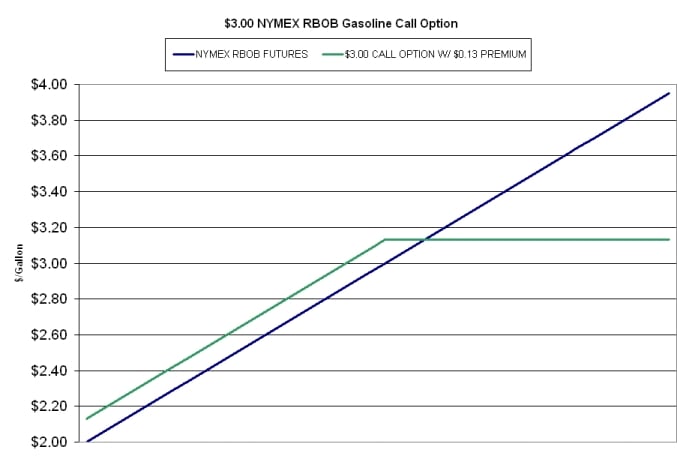3 min read
September Energy Hedging Q&A – Gasoline, Natural Gas & NGLs
Based on the positive feedback we received from the August Energy Hedging Q&A, we're going to make the hedging Q&A a permanent, monthly feature. The...
2 min read
Mercatus Energy : Dec 13,2010
Without further ado, we're glad to post the December energy hedging Q&A. As always, if you would like us to provide a more in depth answer to any of these questions or if you’d like to ask us a question for next month’s Q&A, let us know. Comments below are more than welcome as well.
I read your recent post, Hedging Oil & Gas With Three Way Collars, and wanted to know whether it would be possible to use a similar "strategy" to hedge jet fuel, from the end-users perspective?The short answer is yes, it's most definitely possible. As an example, if an airline is looking to "collar" it's fuel exposure it would buy a call option and sell a put option which would effectively create a cap and floor. If said airline wanted to utilize a three-way collar, they could sell a further out of the money call option.
Whether it actually makes sense in practice is a different story, but the idea behind three way collars is that they are a way to reduce hedging costs by selling an additional, out of the money call option. While three-way options do lower the airlines out of pocket, premium, cost of a traditional collar, they also completely change the airline's risk profile, as they would be exposed to fuel prices rising above the strike price of their short call option.
We're an international E&P company, how can we hedge our basis risk?
It's hard to say without knowing whether you produce oil, gas or both and in what region(s) of the world. That being said, swaps and options are traded on not only WTI crude oil but Brent (North sea), REBCO (Russian Export Blend Crude Oil), Dubai, Oman, etc. Likewise, there are swaps and options traded on other, global natural gas indices that are liquid, such as the UK NBP (national balancing point).
Another option is entering into a marketing agreement that includes a price tied to a liquid trading hub. If you'd like to contact us with more details we can help you determine and quantify your basis risk.
Given the recent announcements from the CFTC, what are you current thoughts on Dodd-Frank, etc. as it relates to energy hedging and risk management?
It's appears that the CFTC is finally starting to realize what a gargantuan task the mandate from Congress is going to be, not only for the CFTC, but for market participants as well. At this point, it's simply too difficult to say given all of the horse trading going on in Washington. However, it does appear that the "end-user" exemptions will be favorable to most commercial hedgers. Here are a few links that discuss the developments of the past couple weeks...
Conflicted CFTC outlines exemptions to swap rules
CFTC Delays Vote on Rules For Swap Trading
Gensler Says CFTC Needs Funds for Rulemaking, Monitoring Under Dodd-FrankLast but not least, if you're new reader of our blog, the previous energy hedging Q&A posts can be found here.
3 min read
Based on the positive feedback we received from the August Energy Hedging Q&A, we're going to make the hedging Q&A a permanent, monthly feature. The...
1 min read
Without further ado, the following are our answers to your May energy hedging questions. As always, if you would like us to provide more depth or...

4 min read
This post is the third of several in a series covering the basics of energy hedging. Here are the links to the first and second posts, which covered